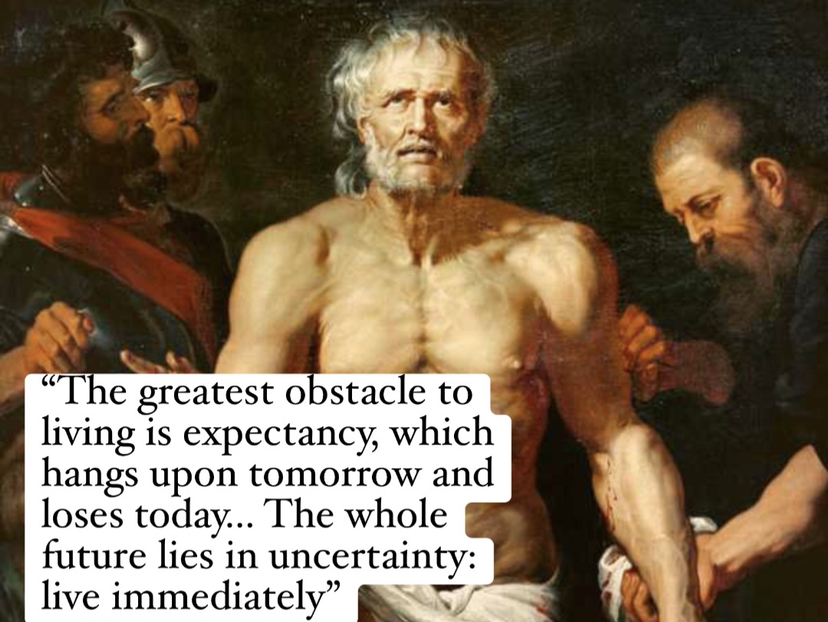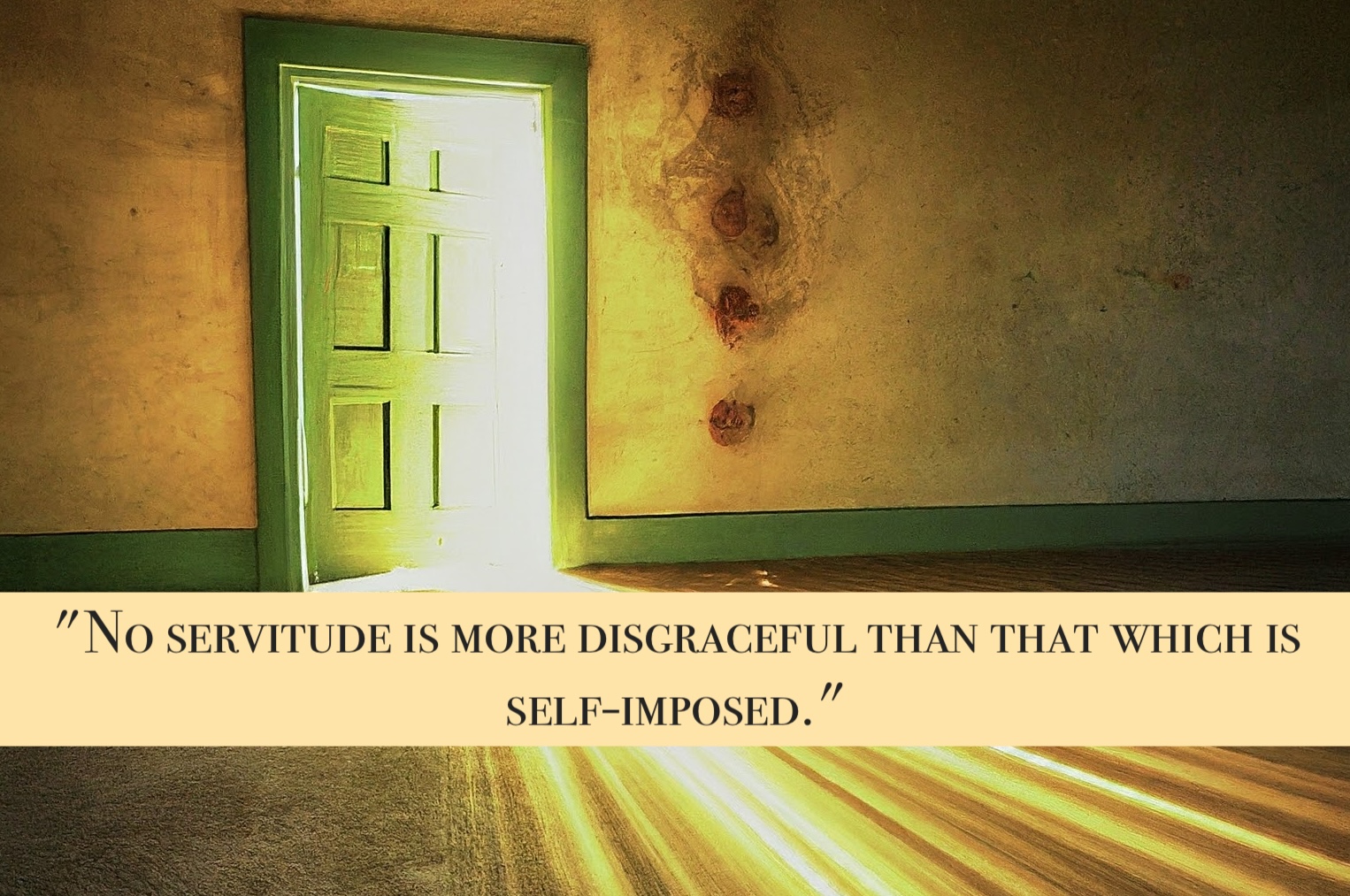How To Live: Lessons From Seneca (IM 983)

"Greatness is a perception that virtue is enough"
Ralph Waldo Emerson
It was Soren Kierkegaard from 19th century who argued that we have two options to live our life: One the life of reason and Two, the life of faith. We cannot live the both. We must choose between the life of pleasures and the ethical life.
Roman Philosopher, Seneca has much more to say when it comes to living the life. 1900 years before Kierkegaard, Seneca, in his treatise On the Shortness of Life argues most of us waste our time and in return demand more time. Everybody is aware that time is valuable but nobody senses it and gives it actual value. He writes:
"It is not that we have a short time to live, but that we waste a lot of it. Life is long enough, and a sufficiently generous amount has been given to us for the highest achievements if it were all well invested. But when it is wasted in heedless luxury and spent on no good activity, we are forced at last by death’s final constraint to realize that it has passed away before we knew it was passing. So it is: we are not given a short life but we make it short, and we are not ill-supplied but wasteful of it… Life is long if you know how to use it."To the ancient Roman philosophers, living a philosophical life is the way to live a very wide life. To them, living wide is completely different than living long. But what is more interesting to know is how to live a philosophical life? To most philosophers, philosophy is about preparing to die. Seneca doesn't have different opinion to this ideology. In fact, he adds and strengthens this by saying:
"No one will bring back the years; no one will restore you to yourself. Life will follow the path it began to take, and will neither reverse nor check its course. It will cause no commotion to remind you of its swiftness, but glide on quietly. It will not lengthen itself for a king’s command or a people’s favor. As it started out on its first day, so it will run on, nowhere pausing or turning aside. What will be the outcome? You have been preoccupied while life hastens on. Meanwhile death will arrive, and you have no choice in making yourself available for that"Perhaps, the good way to live the life is just to be present. Existentialist, Kierkegaard said presence is infinitely more rewarding than productivity. All of our modern ideas about being productive and living life to be productive is just a blur way to live? To this Seneca says, we are living like we live forever. He hits back with hard reality by arguing:
“You live as if you were destined to live forever, no thought of your frailty ever enters your head, of how much time has already gone by you take no heed. You squander time as if you drew from a full and abundant supply, though all the while that day which you bestow on some person or thing is perhaps your last.”Marcus Aurelius talks about the vices of procrastination. "You could be good today" Marcus writes, "but instead you choose tomorrow." This way of putting things off is the complete waste of life according to Seneca as well. He says:
"Putting things off is the biggest waste of life: it snatches away each day as it comes, and denies us the present by promising the future. The greatest obstacle to living is expectancy, which hangs upon tomorrow and loses today. You are arranging what lies in Fortune’s control, and abandoning what lies in yours. What are you looking at? To what goal are you straining? The whole future lies in uncertainty: live immediately."Seneca suggests philosophy offers spiritual parenting to live a meaningful and "wide" life and it is essential to cultivate the inner wholeness. He writes:
"We are in the habit of saying that it was not in our power to choose the parents who were allotted to us, that they were given to us by chance. But we can choose whose children we would like to be. There are households of the noblest intellects: choose the one into which you wish to be adopted, and you will inherit not only their name but their property too. Nor will this property need to be guarded meanly or grudgingly: the more it is shared out, the greater it will become. These will offer you a path to immortality and raise you to a point from which no one is cast down. This is the only way to prolong mortality — even to convert it to immortality."Coming back to Kierkegaard's two options, I think Seneca would go with the former. Because he believed in reasoning. He believed in virtue. He talks about morality. And I think there is no better way to live than living a philosophical life. This wise man writes the wisest words ever written. He writes:
"Everyone hustles his life along, and is troubled by a longing for the future and weariness of the present. But the man who … organizes every day as though it were his last, neither longs for nor fears the next day… Nothing can be taken from this life, and you can only add to it as if giving to a man who is already full and satisfied food which he does not want but can hold. So you must not think a man has lived long because he has white hair and wrinkles: he has not lived long, just existed long. For suppose you should think that a man had had a long voyage who had been caught in a raging storm as he left harbor, and carried hither and thither and driven round and round in a circle by the rage of opposing winds? He did not have a long voyage, just a long tossing about."To all the Optimist, Pessimist, Nihilist, Cynics, Skeptics, Seneca offers different viewpoint of living the life and its worth listening to him.



Leave a Reply
You must be logged in to post a comment.